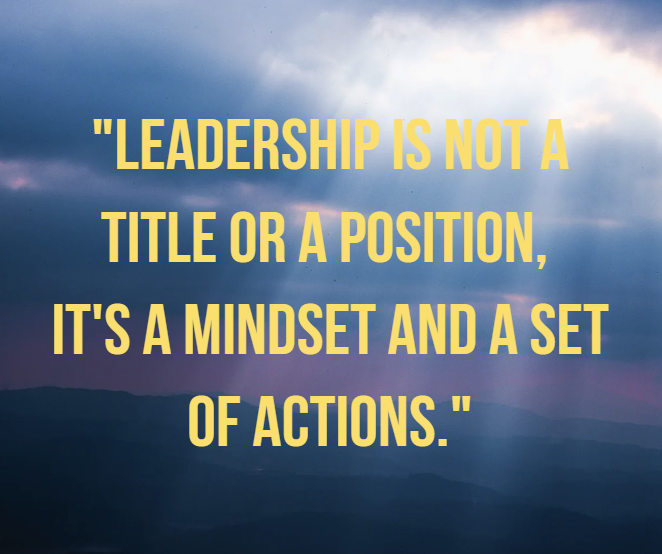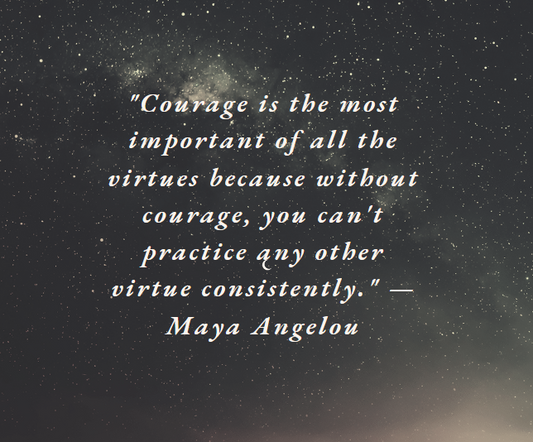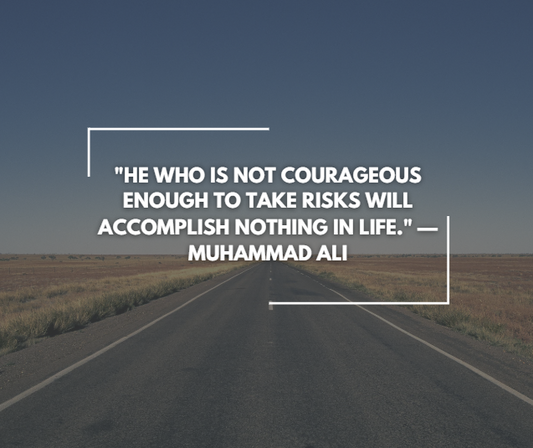This powerful statement encapsulates the essence of true leadership beyond formal roles or hierarchical positions. It emphasizes that effective leadership is defined by a combination of mindset, actions, and the impact one has on others. Let's explore the profound implications of this idea:
At its core, leadership is fundamentally about a mindset—a way of thinking and approaching challenges, opportunities, and relationships. It involves having a vision for the future, inspiring others with that vision, and demonstrating integrity, empathy, and resilience in the face of adversity. Leaders with a proactive mindset anticipate change, embrace innovation, and seek continuous improvement for themselves and their teams.
Contrary to popular belief, leadership is not synonymous with holding a formal title or occupying a specific position within an organization. While titles can confer authority and responsibility, true leadership is demonstrated through actions that inspire trust, motivate others, and drive positive change. Leaders exhibit courage to make difficult decisions, take initiative to solve problems, and empower others to achieve collective goals.
Effective leaders empower and uplift those around them, fostering a culture of collaboration, mutual respect, and inclusivity. They prioritize mentorship and coaching, recognizing the potential in others and providing support to help them grow and succeed. By fostering a supportive environment where individuals feel valued and encouraged to contribute their ideas, leaders cultivate a motivated and engaged team that achieves collective success.
Leadership is about setting an example through consistent actions and behaviors that align with core values and principles. Leaders lead by example by demonstrating integrity, accountability, and ethical decision-making in all aspects of their work and interactions. They prioritize transparency and open communication, fostering a culture of trust and accountability within their teams and organizations.
In today's dynamic and fast-paced world, effective leaders must exhibit adaptability and resilience in navigating uncertainty and change. They embrace innovation, embrace innovation, and resilience in the face of challenges, continuously seeking opportunities for growth and improvement. By adapting to new realities, leaders can inspire confidence and commitment from their teams, driving sustainable success and organizational resilience.
Leadership is a journey of continuous learning and development. Effective leaders invest in their personal and professional growth, seeking feedback, and honing their skills to stay relevant and effective in their roles. They remain curious and open-minded, embracing new perspectives and insights to innovate and lead with agility and foresight.
In conclusion, "Leadership is not a title or a position, it's a mindset and a set of actions" underscores the transformative impact of leadership rooted in values, actions, and impact. True leadership transcends formal authority, inspiring others through vision, integrity, and a commitment to fostering growth and success. By cultivating a leadership mindset and demonstrating purposeful actions, individuals can empower others, drive positive change, and create lasting impact in their organizations and communities. Leadership is a continuous journey of growth, learning, and service—an opportunity to make a meaningful difference and leave a positive legacy for future generations.





